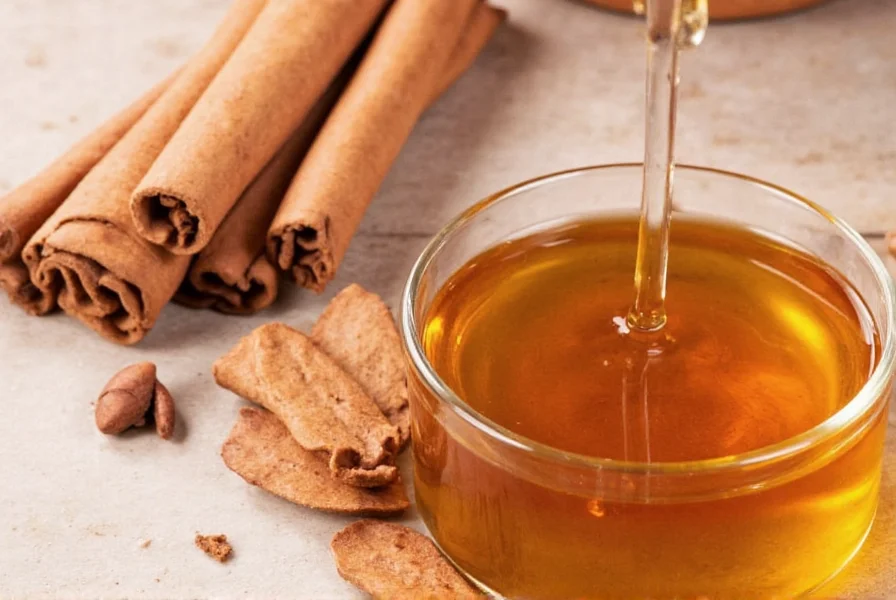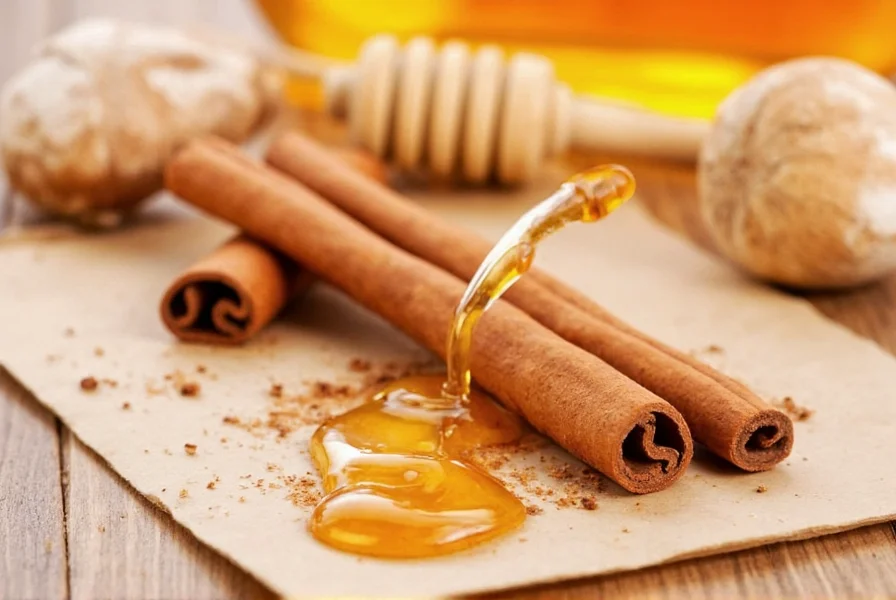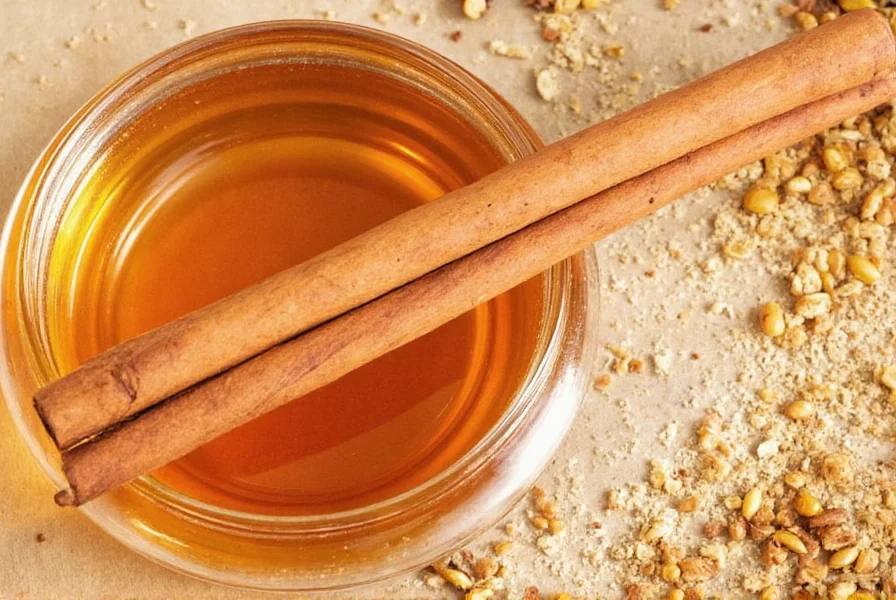When exploring the scientific benefits of cinnamon and honey, it's crucial to separate evidence-based findings from popular myths. Both ingredients have been used in traditional medicine for centuries, but modern research provides clearer insights into their actual physiological effects. This comprehensive analysis examines what current science actually supports regarding the health properties of these common kitchen staples.
The Science Behind Cinnamon and Honey
Cinnamon contains cinnamaldehyde, the compound responsible for its distinctive flavor and many of its biological effects. This phytochemical demonstrates anti-inflammatory properties of cinnamon in laboratory studies. Honey, particularly raw and unprocessed varieties, contains over 180 different compounds including enzymes, vitamins, minerals, and antioxidants like flavonoids and phenolic acids.
Research published in the Nutrition Research Reviews journal indicates that cinnamon may help moderate postprandial blood glucose levels by slowing gastric emptying and improving insulin sensitivity. Meanwhile, honey's composition varies based on floral source, with darker honeys generally containing higher antioxidant levels according to studies in the Journal of Agricultural and Food Chemistry.
Evidence-Supported Health Benefits
| Benefit | Scientific Support | Key Research Findings |
|---|---|---|
| Blood Sugar Regulation | Moderate | Cinnamon may reduce fasting blood glucose by 10-29% in type 2 diabetes according to meta-analysis in Journal of Medicinal Food |
| Antioxidant Activity | Strong | Both ingredients show significant free radical scavenging abilities; honey's ORAC value ranges 63-1267 μmol TE/100g |
| Anti-inflammatory Effects | Moderate | Cinnamaldehyde inhibits NF-kB pathway; honey reduces inflammatory markers in wound healing studies |
| Antimicrobial Properties | Strong | Honey's hydrogen peroxide and low pH create hostile environment for bacteria; cinnamon essential oil shows broad-spectrum activity |
Blood Sugar Management: What Research Shows
One of the most studied cinnamon honey for blood sugar benefits involves glucose metabolism. A comprehensive review in the Annals of Family Medicine analyzed 10 randomized controlled trials and found that cinnamon supplementation significantly reduced fasting blood glucose levels. The mechanism appears to involve enhanced insulin receptor signaling and glucose transporter activity.
When combined, cinnamon and honey create an interesting dynamic. While honey contains natural sugars that temporarily raise blood glucose, cinnamon may help moderate this effect. Research in the European Journal of Clinical Nutrition suggests that consuming cinnamon with carbohydrate-rich foods can reduce the post-meal blood sugar spike by up to 29%. However, individuals with diabetes should monitor their response carefully, as honey still contributes to overall carbohydrate intake.

Antioxidant Powerhouse: Beyond Basic Nutrition
The antioxidant properties of cinnamon and honey represent another well-documented benefit. Cinnamon ranks #1 among 26 common spices for antioxidant capacity according to USDA research. Honey's antioxidant profile varies by floral source, with buckwheat and manuka honeys showing particularly high levels.
These antioxidants combat oxidative stress, which contributes to chronic disease development. A study in the Journal of the Science of Food and Agriculture found that regular honey consumption increased blood antioxidant levels in human subjects. The synergistic effect when combining both ingredients may provide broader protection against different types of free radicals.
Debunking Common Myths
Despite widespread claims, the evidence for certain cinnamon honey weight loss myth assertions remains limited. No high-quality studies demonstrate that cinnamon and honey alone cause significant weight loss. Any effects would likely stem from replacing less healthy sweeteners rather than metabolic changes.
Similarly, claims about curing serious diseases like cancer lack scientific support. While laboratory studies show cinnamon compounds may inhibit cancer cell growth in petri dishes, this doesn't translate to effective human treatment. The American Cancer Society states there's no evidence that honey and cinnamon can treat or prevent cancer.
Safety Considerations and Practical Applications
When incorporating these ingredients into your diet, consider these evidence-based approaches for natural remedies with cinnamon and honey:
- Use 1-2 teaspoons of Ceylon cinnamon daily (preferred over Cassia due to lower coumarin content)
- Choose raw, unprocessed honey to preserve beneficial enzymes and antioxidants
- Combine with warm water for cinnamon honey tea benefits as a soothing beverage
- Use as a natural sweetener replacement in moderation (honey still contains sugars)
Important safety notes: Cassia cinnamon contains coumarin, which may cause liver issues in sensitive individuals with excessive consumption. Honey should never be given to children under one year due to botulism risk. People with diabetes should monitor blood sugar when adding honey to their diet, despite cinnamon's potential benefits.

Conclusion: Balanced Perspective on Natural Ingredients
The scientific benefits of cinnamon and honey are promising but should be viewed within the context of an overall healthy lifestyle. These ingredients offer valuable compounds that may support wellness when used appropriately, but they're not miracle cures. Current research supports their role in blood sugar management, antioxidant protection, and anti-inflammatory effects, while debunking many exaggerated claims circulating online.
As with any dietary component, moderation is key. Incorporating cinnamon and honey as part of a balanced diet rich in fruits, vegetables, and whole grains provides the most significant health advantages. Always consult with healthcare providers before using these or any natural products to address specific health conditions.
Frequently Asked Questions
Does cinnamon and honey really lower blood sugar?
Research shows cinnamon may help improve insulin sensitivity and reduce fasting blood glucose levels by 10-29% in people with type 2 diabetes. Honey contains natural sugars that temporarily raise blood glucose, but when combined with cinnamon, the overall glycemic impact may be moderated. However, honey still contributes to carbohydrate intake, so people with diabetes should monitor their response carefully.
What's the best way to consume cinnamon and honey for health benefits?
For maximum benefits, use 1-2 teaspoons of Ceylon cinnamon (lower in coumarin) and 1-2 teaspoons of raw, unprocessed honey daily. You can mix them in warm water for a soothing beverage, add to oatmeal, or use as a natural sweetener replacement. Avoid heating honey above 140°F (60°C) to preserve beneficial enzymes. Remember these should complement, not replace, a balanced diet.
Are there any risks associated with regular cinnamon and honey consumption?
Yes, potential risks include: Cassia cinnamon contains coumarin which may cause liver issues with excessive consumption; honey should never be given to children under one year due to botulism risk; both contribute to calorie intake (honey is primarily sugar); and people with diabetes should monitor blood sugar carefully. Ceylon cinnamon is preferred for regular consumption due to its lower coumarin content.
Can cinnamon and honey help with weight loss?
There's no strong scientific evidence that cinnamon and honey directly cause weight loss. Any potential benefit would likely come from using them to replace less healthy sweeteners in your diet. While cinnamon may help regulate blood sugar which could indirectly support weight management, and honey might reduce cravings compared to refined sugar, neither ingredient magically burns fat or causes significant weight loss on its own.
How long does it take to see benefits from cinnamon and honey?
The timeframe varies by benefit. Blood sugar improvements from cinnamon may be noticeable within 2-4 weeks of regular consumption (1-2 teaspoons daily). Antioxidant effects build up gradually with consistent use over months. For wound healing or topical applications, effects may be seen within days. However, many purported benefits lack strong evidence, so realistic expectations are important—these are supportive elements of a healthy lifestyle, not quick fixes.











 浙公网安备
33010002000092号
浙公网安备
33010002000092号 浙B2-20120091-4
浙B2-20120091-4